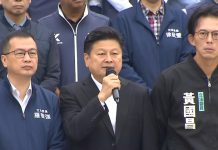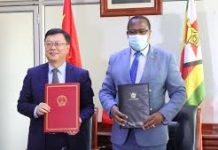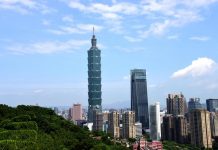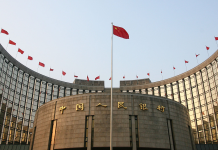BEIJING: Chongyang Institute for Financial Studies at Renmin University of China unveiled a report titled “China’s Compounding Interest: High-Quality Development and Outlook for 2035” at an international symposium held in Beijing which saw the participation of renowned experts from around the world. As per the report, released in collaboration with Center for China-US Cooperation at University of Denver (CCUSC), the Free Economic Society of Russia (VEO of Russia), Geopolitical Economy Research Group at University of Manitoba (GERG), India-China Economic and Cultural Council (ICEC), the compounding interest of China is characterized by stability of returns, long-term accumulation and sustainability.
With enormous potential, this development model can sustainably drive the country’s economic growth and promote prosperity in the long term. The momentum of China’s modernization, characterized by the development of ‘compounding interest’, focuses on taking innovation driven initiatives, deepening reforms, expanding opening-up, and promoting green development, media reported on Monday. Observers in China and abroad agreed that China has embarked on a new era of structural transformation, “Like globalization, China is giving compounding interest a new meaning,” noted Radhika Desai, Professor at the Department of Political Studies, and Director of Geopolitical Economy Research Group, University of Manitoba (GERG), Canada. Desai explained that in the financialized West, the rentier worshippers of compound interest imagine that money multiplies on its own. They neglect the productive processes necessary to produce the goods and services that will earn compound interest and support policies and decisions that actively strangle production. “By contrast, this report sees “compounding interest” entirely in terms of production: in terms of national “wealth growth and assets preservation and appreciation … characterized by stability of returns and long-term accumuulation … [through] .. innovation-driven initiatives, deepening refoorms, expanding opening-up, and promoting green development,” Desai pointed out.
“The concept of compounding interest is particularly relevant in the context of China’s development,” said Mohammed Saqib, Secretary General, India China Economic and Cultural Council (ICEC), India. Saqib believes that by actively participating in international trade, attracting foreign investment, and engaging in economic cooperation with other countries, China has not only expanded its market access but also benefited from the exchange of knowledge, technology, and capital.
“China is holding out the option of continued global economic development by its laser-like focus on a technology-driven course,” remarked William Jones, Former Washington Bureau Chief for the Executive Intelligence Review (EIR), USA. “Without the engine provided by the Chinese economy and the political commitment to maintain a world of peace and development, the rest of the world would be in a much worse situation than it is at the moment.” –Agencies






